Richard Adams has been making music for several decades, firstly with the band Hood (formed with brother Chris), then from 2007 mainly through a mounting body of work under the name of The Declining Winter. This music has been justly described as pastoral, at least insofar as it is rooted and grows out of Adams’ Yorkshire environment. The latest album, ‘Really Early, Really Late’, took several years to make yet betrays no sense of a difficult birth. Rather it’s a collection of expansive atmospheres as broad as rural skies combined with singing as intimate as village life; a truly special achievement which in time will hopefully be recognised as such. As he has shown in its making, Adams is in no rush for acclaim. Rather, as he concludes, he prefers to “focus on the music as a totally separate entity without any thought of what anyone might think”. Talking to Pennyblackmusic, he delves into the influences upon the album, how he worked with the remote contributions from a large group of musicians, and the prospect of live performances for this coming Winter. Pennyblackmusic: Before The Declining Winter, you were in Hood with your brother Chris. Can you talk a bit about that band’s music? RICHARD ADAMS:: Well, we started off pretty lo-fi - our initial recordings were done just by plugging a guitar into my dad’s stereo, screaming over the top and recording it. Fast forward 15 years and it became almost a proper band. It was all great fun - like a world within a world really, where we were just trying things to see if they worked and infiltrate the system a little. I guess I’m the wrong person to describe what it sounded like - it’s all there on Spotify,etc - but I guess we were always trying to come up with new musical ideas and push it into new places. It was kind of a major obsession for us for a while. PB: Was there a lightbulb moment when you decided to write songs as the Declining Winter, or was it more of a gradual evolution away from what you did in Hood? RA: I’d say a bit of both. I had in mind where I was wanting to go musically as I was finding it harder to shoehorn my stuff into what Hood was doing at that time, so I started stockpiling ideas. It was always a matter of me thinking ‘If I had my own band I'd do this’ type of thing, and so when Hood went into hiatus that became more of a reality and I started working on it. Since then it has ebbed and flowed; sometimes working on similar ideas and other times going down different avenues. PB: It’s been said that you draw inspiration from the Yorkshire environment, seen for instance in a song title like ‘Song of the Moor Fire’. How true do you feel this idea actually is? How does it manifest itself? RA: Yes, definitely. A lot of inspiration is drawn from where I live and the areas around it. I’m not really sure how it could be any other way for me. I’m not the sort of person who could write about, say, New York. There’s enough songs about London around but very few about Ripponden, so I’m just trying to redress the balance a bit. The Yorkshire countryside is what I know and inspires me, so it constantly finds itself as a point of reference but often it's just as a background to other stuff, i.e as a context or setting a scene for more personal writing. PB: ‘Really Early, Really Late’ is an unusually beautiful record. While making it, did you feel that it was a leap forward musically, or simply the next step on from your previous work? RA: Thank you, that's lovely to hear. I knew I was onto something but I wasn’t sure that anyone would really get it. I had more time to really work on stuff due to Covid,etc but I kind of found a song cycle based upon demos I’d done where I thought everything worked very well as a singular piece. Each track flowed really well into the next, so it was then just a matter of somehow realising that. It was a new way to work for me but as the tracklist was defined so early I could work on it as a record start to finish rather than piece things together later on, which is the way I'd previously worked. PB: One of the intriguing aspects of the ‘Really Early, Really Late’ back-story is that it reportedly took five years to make. Presumably a factor was the enforced isolation due to the pandemic, but what else was involved? Do you simply have an unhurried process, or was it more problematic than that? RA: It was done over a number of years but I was also working on parallel projects at the same time. It didn’t take up all my time but part of the process was that I wanted to give it time to breathe - let it go for a while and work on something else before I returned to it. Many months passed by with it not being touched at all, but for me that space remains an important part of it. I’d also say that these days I have an unhurried process, no record labels screaming for product, no tours to time things with. I don’t think the world was exactly crying out for a Declining Winter record and so I was in the mindset of taking as long as I liked over it. PB: A dozen other musicians are credited, but without mentioning who played what or on which tracks. Is there a particular reason for this? RA: Well, firstly it would have taken up a lot of text to add in individual credits, secondly it almost wouldn’t seem fair if a person had only contributed to one track where others did more. I didn’t want a hierarchy - everyone played their part and I wanted to give them equal billing. But I think the major thing is that I wanted a bit of mystery to it, I don’t want everything explained and I like people to wonder about it. To me a list of names looks good in almost a quite formal way. I think Jason Molina did it like this on his Songs: Ohia album ‘Ghost Tropic’ and I always liked the way it looked. PB: Was the album basically created out of audio files you received for you to blend together? Alternatively, were any of the songs recorded with the players all in the studio? I’m struck by how sensitive the musicians are to each other. RA: Yes, only the saxophone parts were recorded with other people in a studio. That’s just because I didn’t trust myself to record the instrument at home. Nothing else was recorded together; it was all remote. Sometimes parts were used wholesale and sometimes just tiny parts were used. At other points people would give me three or four takes that I’d blend together - use the best bits or just fragments. I guess they all sort of know what I’m after; I’ve worked with a lot of these musicians on and off for a long time. I can’t credit them enough really: well, as I said earlier, I could but it would be complicated! The album simply wouldn’t exist without them. It’s a true collaboration. PB: Among the influences I hear are early Pink Floyd, David Sylvian and especially Bark Psychosis. Would you agree with any of these suggestions? Do you have a different musical pantheon? RA: Yeah, the last two really. Talk Talk and Mark Hollis are the other obvious names to add. I guess any kind of music that is based on building up tension and atmospheres and stretching it out. I always like the idea of taking what is basically simple guitar-based music and mutating it into different areas, utilising orchestral instruments and electronics and blurring the arrangements but so that it sounds of a piece. It’s a bit of an anything goes approach really with lots of happy accidents. PB: With the album taking so long to record, did you ever fear it would never be finished? How did you decide that it was? RA: Strangely it wasn’t as hard to finish as earlier records. It kind of wrote itself, really. I think I mixed five tracks at home to my satisfaction and sent four more one by one to Ross Halden at Hohm studios. He’s someone I trust with my music, that he’ll just expand on what I’ve done and make it better, not completely re-arranging it. He works in a very ego-free way, almost like he’s a clever extension of my brain doing things I can’t do but would like to. Generally it was the tracks with drums that he worked on - I was worried that his mixes would sound really hi-fi and mine lo-fi but when I put them together they blended OK. The title track was the hardest to finish - I think we were on to mix 7 or 8, continually nudging things up and down and we even remixed it after the record was sent off to be pressed, hence why the single version is slightly different. I’m not even sure it is finished. There are at least two tracks I’d like to have another go at, but it's usually when you can’t hear any obvious flaws that you have to accept a record is done. PB: A live performance of the whole album could be a really special event. Do you have any plans for such a concert, or would the logistics (e.g. expense) make it too difficult? RA: We’re trying. We have UK dates booked in November. I didn’t want to tour it straight away. I wasn’t really in the right place in my life to commit to it, but also I wanted to let the record sit with people. Anyone who even tries to play live has my utmost respect - it's just a catalogue of headaches and things going wrong. I’ve already had a series of mini disasters with it before a note has been plucked, but I’m hopeful we can pull something together. PB: Your next album will take five years to complete: if you were told that for a certainty today, would that prospect scare or enthuse you? RA: It would enthuse me, I think. I’ve actually already finished the next one but it isn’t a proper album, more of an interim album or a mini album. It was all done very quickly with just two musicians. But for the next album proper I think I’m happy to just slowly work on ideas away from any pressures of having to ever release it. If anything eventually comes together that’s releasable then great. I think that’s the key to getting something successful done - just block out the world and focus on the music as a totally separate entity without any thought of what anyone might think or who the hell might buy it. PB: Thank you.
Band Links:-
https://www.thedecliningwinter.com/https://www.facebook.com/thedecliningwinter
https://twitter.com/DecliningWinter
Play in YouTube:-
Have a Listen:-
Picture Gallery:-
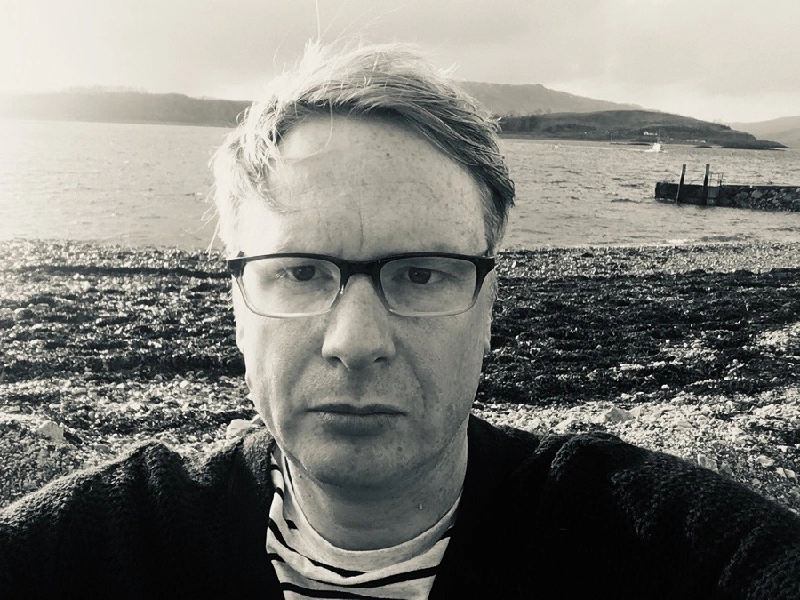
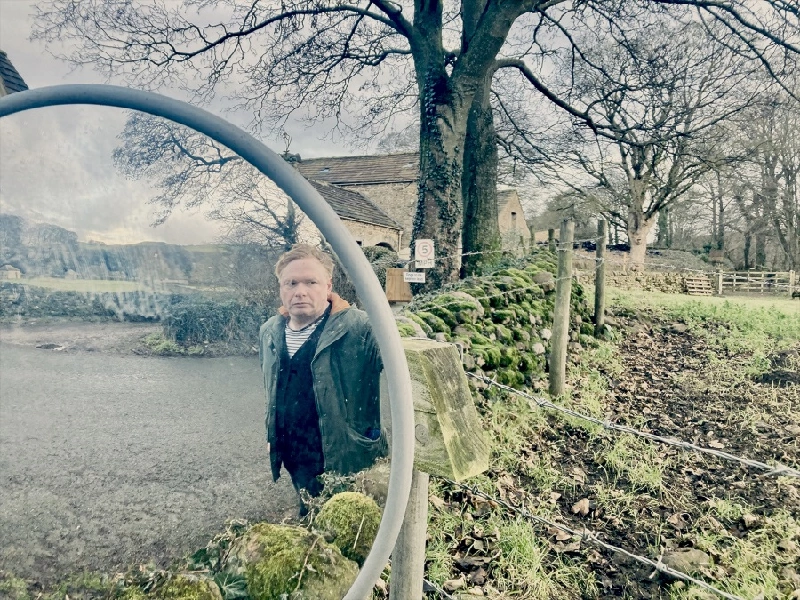
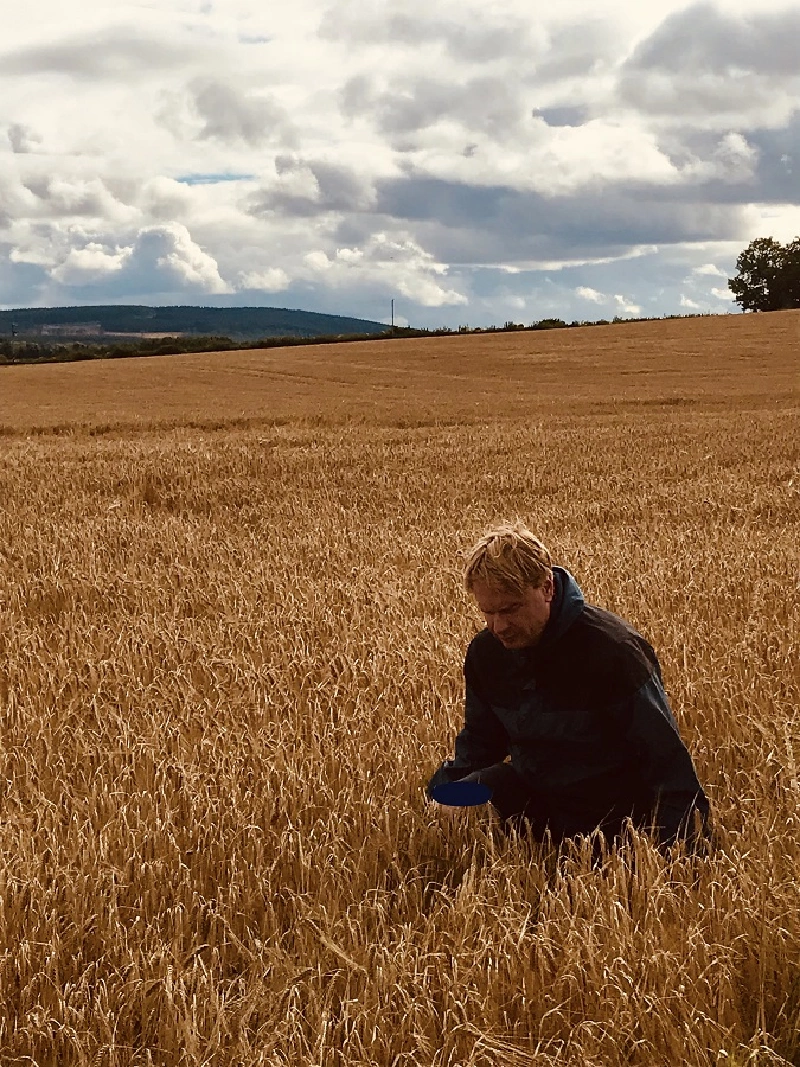
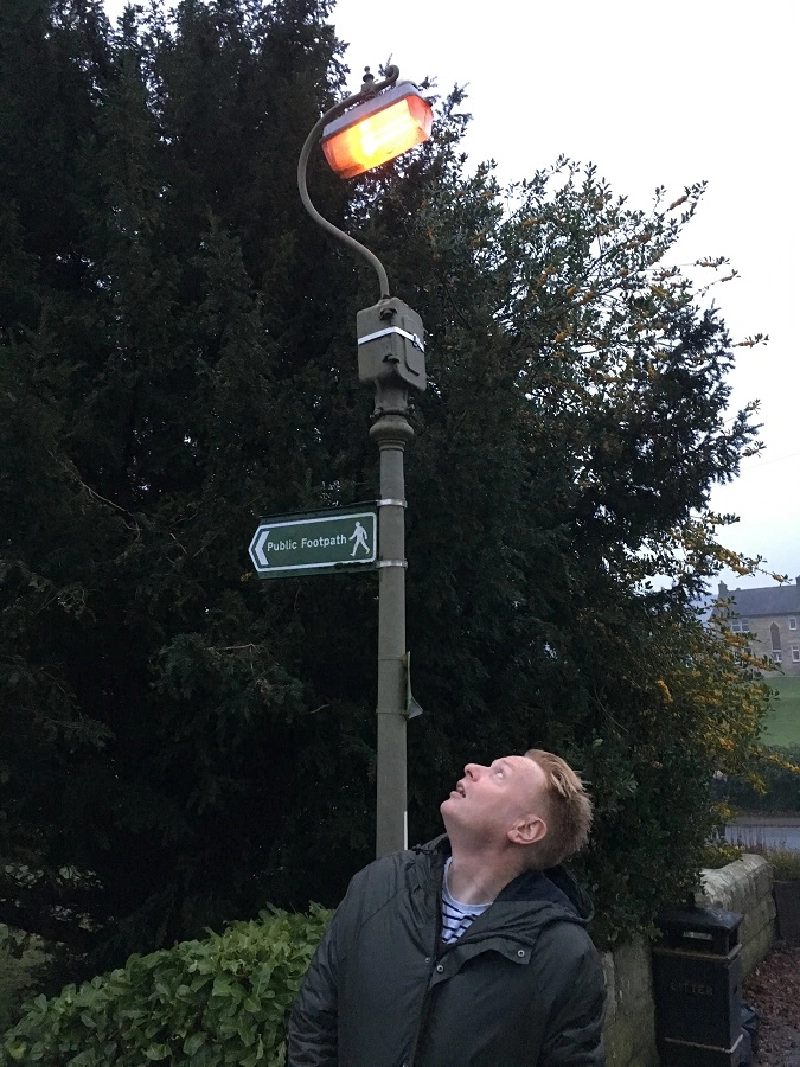
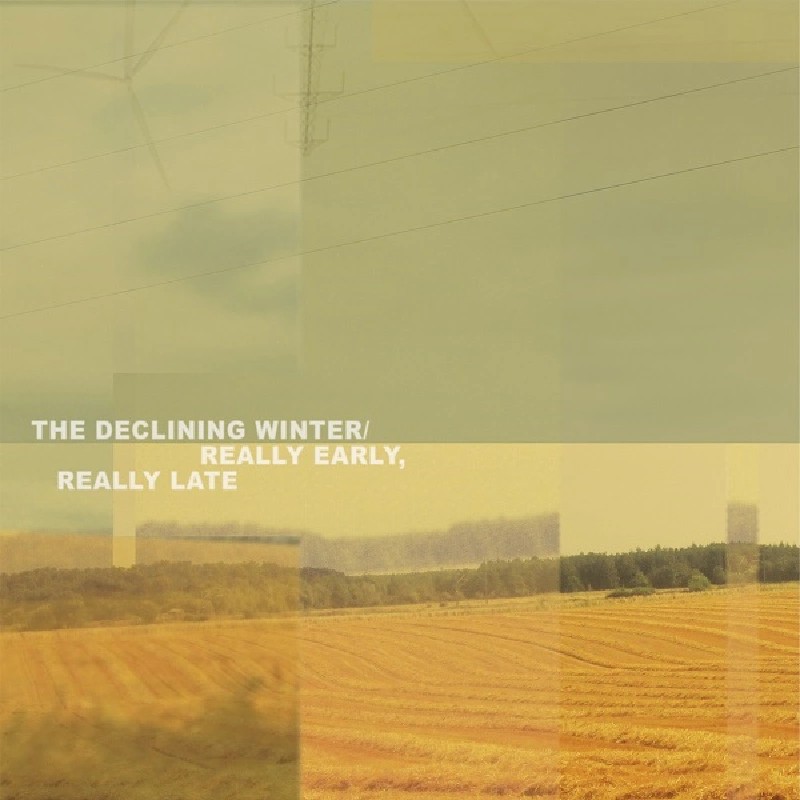
intro
Adrian Janes talks to Yorkshire-based musician Richard Adams about his band The Declining Winter's first album in five years, 'Really Early, Really Late'.
soundcloud
reviews |
|
Really Early, Really Late (2023) |
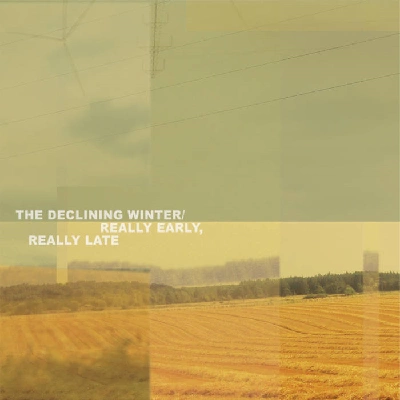
|
| Tenth album from Yorkshire-rooted UK band The Declining Winter who, under aegis of Richard Adams, combine rock, folk, classical, electronica and jazz in beautiful musical mosaics. |
| Belmont Slope (2019) |
| Haunt the Upper Hallways (2009) |
most viewed articles
current edition
Spear Of Destiny - InterviewRobert Forster - Interview
Fiona Hutchings - Interview
When Rivers Meet - Waterfront, Norwich, 29/5/2025
Carl Ewens - David Bowie 1964 to 1982 On Track: Every Album, Every Song
Brian Wilson - Ten Songs That Made Me Love...
Chris Wade - Interview
Pistol Daisys - Waterfront, Norwich, 29/5/2025
Credits - ARC, Liverpool, 17/5.2025
Nils Petter Molvaer - El Molino, Barcelona, 24/4/2025
previous editions
Heavenly - P.U.N.K. Girl EPBarrie Barlow - Interview
Boomtown Rats - Ten Songs That Made Me Love....
Dwina Gibb - Interview
Oasis - Oasis, Earl's Court, London, 1995
Sound - Interview with Bi Marshall Part 1
Beautiful South - Ten Songs That Made Me Love...
Trudie Myerscough-Harris - Interview
Manic Street Preachers - (Gig of a Lifetime) Millennium Stadium, Cardiff, December 1999
Serge Gainsbourg - Ten Songs That Made Me Love...
most viewed reviews
current edition
Peter Doolan - I Am a Tree Rooted to the Spot and a Snake Moves Around Me,in a CircleGarbage - Let All That We Imagine Be The Light
Vinny Peculiar - Things Too Long Left Unsaid
Little Simz - Lotus
John McKay - Sixes and #Sevens
Suzanne Vega - Flying With Angels
HAIM - I Quit
Vultures - Liz Kershaw Session 16.06.88
Billy Nomates - Metalhorse
Eddie Chacon - Lay Low
Pennyblackmusic Regular Contributors
Adrian Janes
Amanda J. Window
Andrew Twambley
Anthony Dhanendran
Benjamin Howarth
Cila Warncke
Daniel Cressey
Darren Aston
Dastardly
Dave Goodwin
Denzil Watson
Dominic B. Simpson
Eoghan Lyng
Fiona Hutchings
Harry Sherriff
Helen Tipping
Jamie Rowland
John Clarkson
Julie Cruickshank
Kimberly Bright
Lisa Torem
Maarten Schiethart